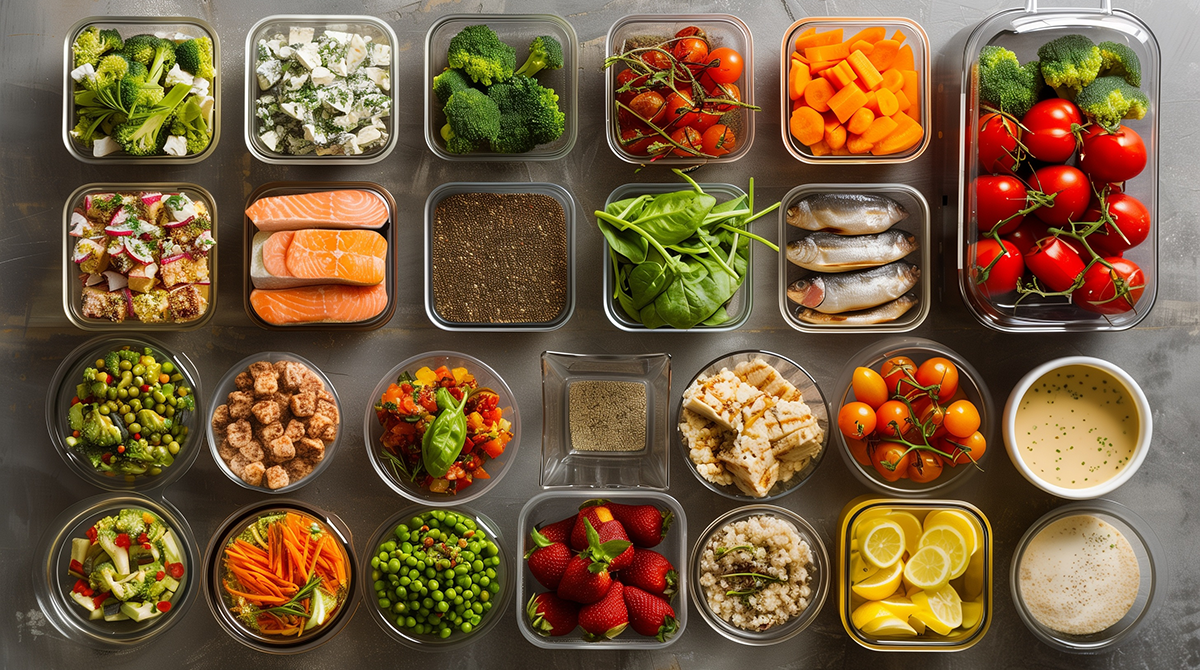Crash diets are nothing new. They’ve been around for several decades now – but their popularity soared from the 70’s and 80’s, with celebrities worldwide creating their own versions which promised to help you ‘drop a stone in a week’. These days, the idea of crash dieting is much more frowned upon, for various reasons. Want to know more about crash diets? Read on.
What is a crash diet?
So, what is a crash diet? Look up the ‘crash diet’ definition anywhere online – you’ll see right away that this kind of eating involves making a drastic, unsustainable change to your eating habits for a short period of time with the intention of losing vast amounts of weight – and doctors hate it.
Most crash diets involve severely restricting your calorie intake by eliminating several food groups and allowing you to only eat one or two types of very low-calorie food for several days at a time. This type of diet is certainly capable of inducing rapid weight loss, but that doesn’t mean it’s healthy, sustainable or that you’re even losing fat during this time.
How do crash diets work?
Crash diets work by severely restricting your calorie intake for just a few days at a time – usually around 7 – 14 days. The creators of fad diets like to ‘dress up’ the diet and give it a name to make it appear to be something exciting, innovative and new, but in reality, any diet which cuts your calorie intake to just a few hundred calories per day is a crash diet – and unsafe.
Your body needs a certain number of calories each day to fuel even the most basic of functions such as breathing, regulating your temperature and keeping blood flowing around your body properly. If the calories it needs to do this fall too low, it will begin to rely on the fat stores your body has stored to see it through the period of time it’s lacking in dietary calories.
However, to conserve energy, your body will also slow your metabolism down, meaning when you do begin eating again, you will put all of that weight back on – and possibly more than ever before as your body tries to store more fat to prepare for further episodes of calorie deficit. Of course, the creators of crash diets won’t mention this part – they will focus on the short term weight loss you will undoubtedly see – because that’s what sells their diet.
What period of time you can be on a crash diet for?
Because a crash diet is both terrible for your health nutrient-wise and also because you’ll feel incredibly weak (perhaps even lightheaded) while following it, most of them are just 7 – 14 days long. Any longer than this, and you are putting yourself at serious risk of nutrient deficiencies and it’s likely your immune system will begin to suffer.
What are the likely results of being on a crash diet for 7 days?
A 7 day crash diet will certainly cause weight loss, but it’s important to note that the majority of this weight loss will be water weight. While some fat will be lost, it’s inevitable that your body will go into ‘emergency starvation mode’, slowing your metabolism down to almost a standstill and holding on for dear life to every gram of fat which passes your lips.
True, you may lose a dress size or so, but the moment you return to eating anything which closely resembles a ‘normal’ diet, you’ll pile back on all the weight your body has lost, and the worst part is you’ll gain weight on top of that!
Because your body believes it’s just survived through a food shortage crisis, it’s going to prepare for the worst, and what that means is it’s going to keep your metabolism running slow, and store away more fat for future issues like this arising again. In effect, crash dieting ruins your metabolism and sends your body’s natural weight loss system into crisis mode.
What are the benefits of a crash diet? (if any)
The only single benefit we can see from any crash diet is the fact that you will lose up to a dress size in a few short days. But (and it’s a big but), this new slimmer physique will only last for a few days – or for as long as you can continue to deny your body of vital vitamins, minerals, nutrients, and calories. And that’s where the benefits end.
Because crash diet creators want you to buy their ‘amazing’ crash diet plan, they will play on this one benefit of course. They will sell you the dream – the one thing you desire more than anything – to be slimmer, fast. But they won’t tell you the whole truth of course, because that may put you off your purchase!
What are the dangers and side effects of a crash diet?
As you’ve just read, crash diets cause metabolism issues and further weight gain in the long term. The worst part is, most people’s reaction to this inevitable weight gain they’ll experience once the crash diet is over is to go on another crash diet, and the cycle not only continues but causes the problem to become even worse. With every crash diet, you gain more weight, and the end result is a few years down the line, you simply become a heavier version of yourself, with a wrecked metabolism to boot.
Not only this, your muscle mass will begin to suffer too. Not only will your body eat away at some fat during a crash diet, but it’ll also begin to eat away at muscle too. And the less muscle we carry, the slower our metabolism becomes. So as you can see, a crash diet is the perfect recipe for long term weight gain – and not much else.
Another common side effect of crash dieting is constant hunger. As your body begins to believe you’re starving to death, it will battle with you to make you seek out food at every opportunity, leading to obsessive thoughts, moodiness and sometimes even anger issues.
Dehydration is common too. As your body loses so much water weight, it’s all too easy to fall victim to this.
The truth is, even the ‘best crash diet’ will come with side effects. From mood swings to metabolic damage, muscle burn off and weight gain. In fact, we don’t encourage any kind of crash diet, and instead encourage long-term, sustainable changes to gradually reduce your excess fat levels through an improvement to your diet and exercise program.
Here’s a little more explanation about the dangers of a crash diet:
Crash diets you’ve probably heard of
There have been so many fad diets introduced over the years, it’s hard to name them all. But here’s a few which are guilty of being classed as ‘crash diets’:
- The pineapple diet
- The cabbage soup diet
- Oz-approved 7 day crash diet
- The 17-day diet
- The baby food diet
- The grapefruit diet
Think these diets sound dodgy, weird or dangerous? Good! Now you’re getting the idea!
What’s the alternative to crash diets?
It’s always better to use natural, sustainable methods to help you to lose weight, and it’s important to accept that the weight loss isn’t going to be instant. There is no ‘quick fix’ to long term weight loss. In fact, it’s going to take some time – but if you carry on with the changes, that weight loss will last forever!
Cutting down on calories and processed foods (and fats) will help with weight loss, but it’s important that you’re still eating enough calories to sustain your basic bodily functions. For most people, that means creating a deficit of no more than 300 – 400 calories below their RDA.
In addition, you should focus on growing muscle tone (to boost your metabolism), get your macros in order and perhaps help yourself to stave off hunger at the beginning through the use of reputable appetite suppressants such as PhenQ.
The fact is, it took you years to gain the excess fat you currently have, and you’re just going to have to accept that to remove it in a sustainable way is going to take some time too. But it won’t take years – usually, a huge change can be seen in just a few short months. Now that’s not that much time when you think about it, is it? So ask yourself, in a years time, do you want to be bigger than now? If so, opt for crash dieting. Or, do you want to be slimmer, forever? You know what you have to do!
Ever heard about the Yoli Diet? Check our Yoli Diet review here





